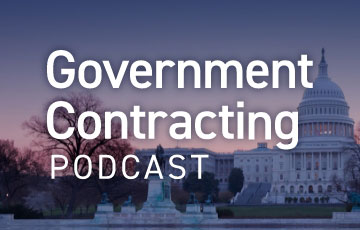In this podcast series’ previous episode, we mentioned the need for tech companies contracting with the federal government to have an approved accounting system to properly accumulate and allocate costs, as well as how to bill costs to the government. In this context, the system isn’t simply ERP or an accounting software package, but rather the people, processes, controls and training that comprise an organization. If you’re just getting into working with the federal government, you might be asked to get an approved accounting system in compliance with SF1408 Pre-Award Survey of Prospective Contractor (Accounting System).
Listen as Craig Hunter and Eric Poppe from Cherry Bekaert’s Government Contracting team cover various topics to consider for your company’s compliance:
- Direct vs indirect costs
- Allowable vs unallowable expenses
- How to adjust your current system to track contract costs
- Who the key players are as you work through a contract
Be sure to stick around for the next episode in this series, which will address an important area of concern for many tech companies: protecting commerciality and intellectual property.
And if you haven’t already, be sure to catch up on the first three segments of this series:
- Should Your Tech Company Work with the Government?
- How Tech Companies Can Successfully Capture Federal Business
- You’ve Won Your First Contract – Now What?
- Protecting Your Tech Company’s Intellectual Property in a Government Contract




